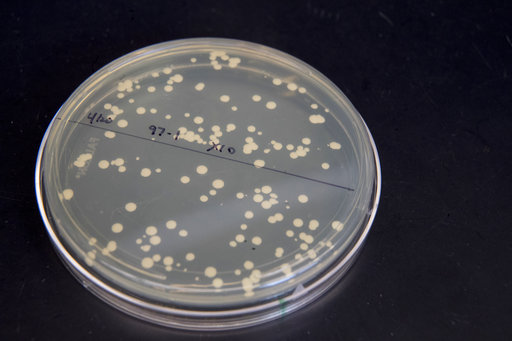by Malcolm Ritter
At Jef Boeke’s lab, you can whiff an odor that seems out of place, as if they were baking bread here.
But he and his colleagues are cooking up something else altogether: yeast that works with chunks of man-made DNA.
Scientists have long been able to make specific changes in the DNA code. Now, they’re taking the more radical step of starting over, and building redesigned life forms from scratch. Boeke, a researcher at New York University, directs an international team of 11 labs on four continents working to “rewrite” the yeast genome, following a detailed plan they published in March.
Their work is part of a bold and controversial pursuit aimed at creating custom-made DNA codes to be inserted into living cells to change how they function, or even provide a treatment for diseases. It could also someday help give scientists the profound and unsettling ability to create entirely new organisms.
The genome is the entire genetic code of a living thing. Learning how to make one from scratch, Boeke said, means “you really can construct something that’s completely new.”
The research may reveal basic, hidden rules that govern the structure and functioning of genomes. But it also opens the door to life with new and useful characteristics, like microbes or mammal cells that are better than current ones at pumping out medications in pharmaceutical factories, or new vaccines. The right modifications might make yeast efficiently produce new biofuels, Boeke says.
Some scientists look further into the future and see things like trees that purify water supplies and plants that detect explosives at airports and shopping malls.
Also on the horizon is redesigning human DNA. That’s not to make genetically altered people, scientists stress. Instead, the synthetic DNA would be put into cells, to make them better at pumping out pharmaceutical proteins, for example, or perhaps to engineer stem cells as a safer source of lab-grown tissue and organs for transplanting into patients.
Some have found the idea of remaking human DNA disconcerting, and scientists plan to get guidance from ethicists and the public before they try it.
Still, redesigning DNA is alarming to some. Laurie Zoloth of Northwestern University, a bioethicist who’s been following the effort, is concerned about making organisms with “properties we cannot fully know.” And the work would disturb people who believe creating life from scratch would give humans unwarranted power, she said.
Read more at: https://phys.org/news/2017-07-scientists-dna-life-blueprint.html#jCp
























